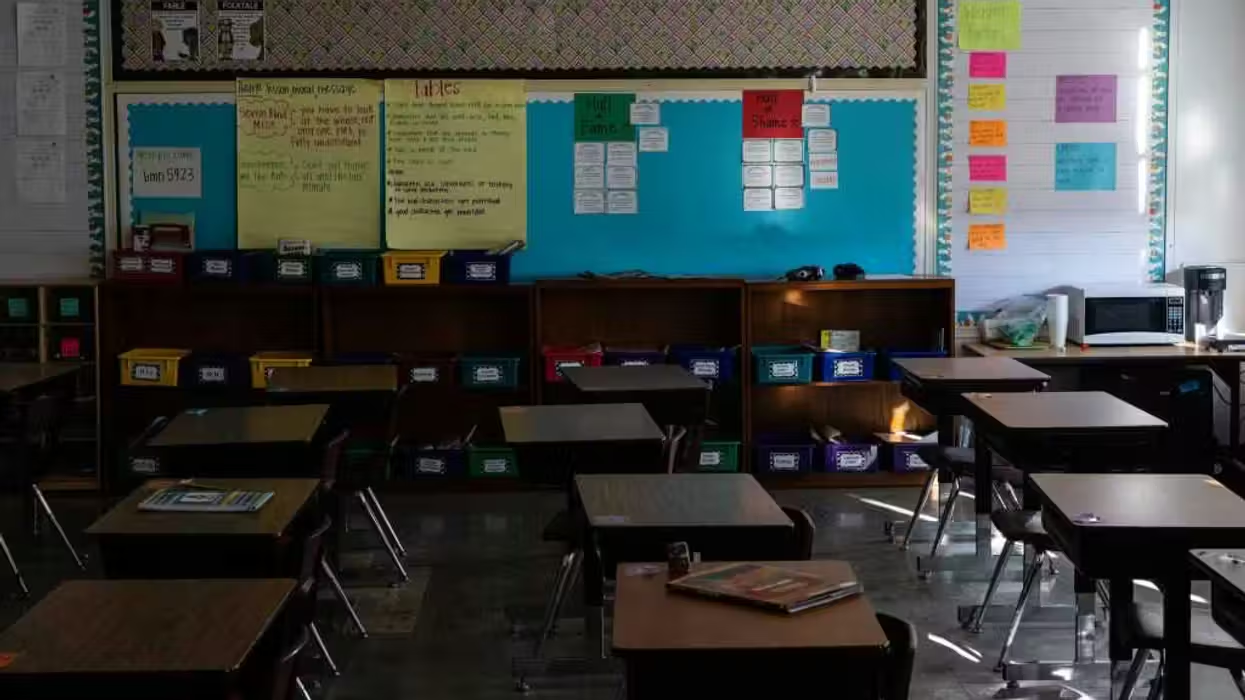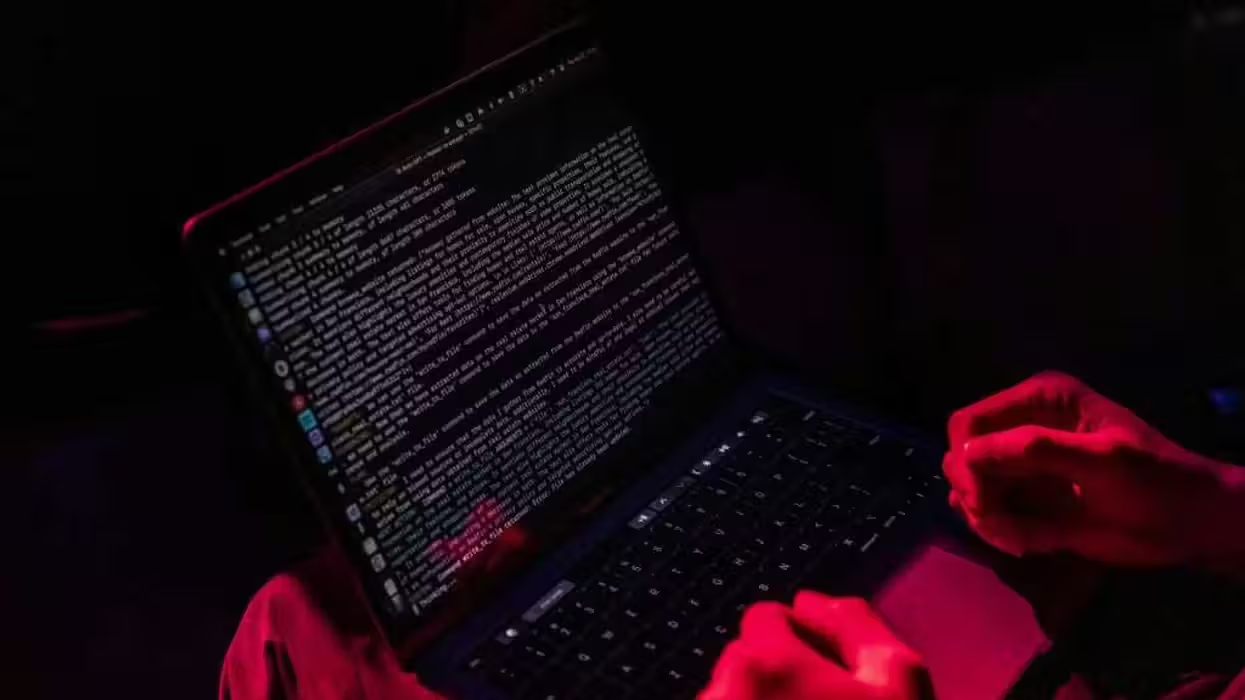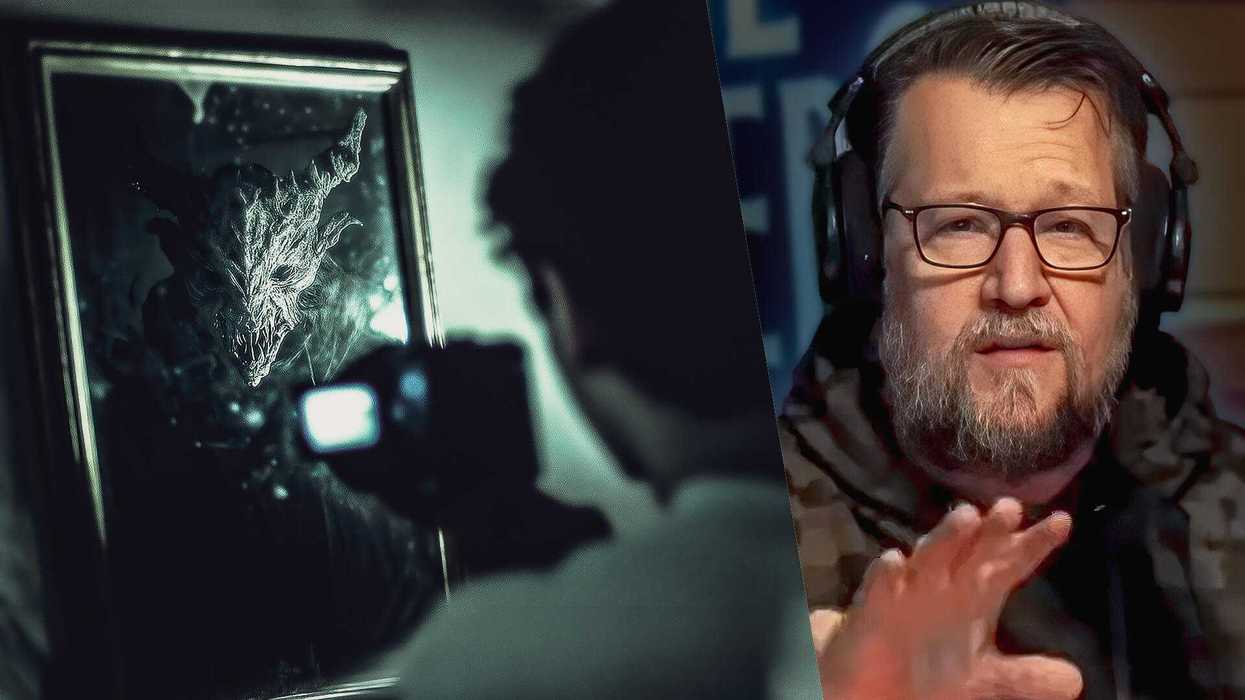MISSION, Texas — Hundreds of people were scattered all across Anzalduas Park on the banks of the Rio Grande and edge of the United States on Father’s Day. Only 60 yards across the river, on the Mexican side of the border, a small resort park of jet skis, boats and swimmers blended with the American families in the water's semi-neutral zone that divides both nations.
But in the confusion of children swimming, small boats and skiers, one of the men, a trafficker whose operations are conducted at the park, was taking illegal immigrants across the water on his yellow jet ski and dropping them off along a bank hidden by trees on the U.S. side of the river. His partner, another man on a blue jet ski, was doing donuts in the water, creating large walls of water to distract from the drop-off point along river's bend.
It wasn't enough to distract one Border Patrol agent, who spotted the people — who seemed to appear out of nowhere — scurrying from the trees.
“They’re dropping them off,” said Agent Albert Spratte, a union steward. “I’m calling it in.”
 Anzalduas Park in Mission, Texas, along the Rio Grande is a spot where drug cartels and human traffickers move contraband into the United States. U.S. Border Patrol agents and the Texas Department of Public Safety apprehended six illegal migrants being moved onto the U.S. side of the border by jet skis on June 15, 2014. Other jet ski drivers are used as a distraction so the cartels can move narcotics at other areas of the river. (Photo: Sara A. Carter/TheBlaze)
Anzalduas Park in Mission, Texas, along the Rio Grande is a spot where drug cartels and human traffickers move contraband into the United States. U.S. Border Patrol agents and the Texas Department of Public Safety apprehended six illegal migrants being moved onto the U.S. side of the border by jet skis on June 15, 2014. Other jet ski drivers are used as a distraction so the cartels can move narcotics at other areas of the river. (Photo: Sara A. Carter/TheBlaze)
A woman and man moved quickly across the grass to a pickup truck that had been sitting in the park since early morning. A short time later, another woman and several men who also seemed to appear from nowhere on the banks of the river rushed behind them and disappeared off into the crowd. The Rio Grande Valley has been flooded with illegal immigrant crossers over the past year; most of the 47,000 children who have made their way from Central America over the last eight months are crossing from Mexico by raft over the Rio Grande. Most of the women and children from Central America turn themselves in without a fight.
The illegal migrants being transported by jet skis, however, didn't want to be caught. Within three minutes, the park started to look like a war zone.
Texas Department of Public Safety helicopters began flying overhead and two patrol boats from the Tactical Marine Unit, with six public safety troopers on each boat, pulled into the area where most of the families were swimming. The troopers – some with their faces completely covered so as not be recognized – began searching the water and scoping the area with a camera on the U.S. side, as well as the Mexican side. Each patrol boat had six M-240 machine guns, dual-mounted on both sides of the front of the boat, and single-mounted on both sides at the back of the boat.
 Border Patrol agents in Mission, Texas, apprehended six illegal immigrants who were being transported on June 15, 2014 by jet ski from Reynosa, Mexico, across the Rio Grande to Anzalduas Park in the United States. (Photo: Sara A. Carter/TheBlaze)
Border Patrol agents in Mission, Texas, apprehended six illegal immigrants who were being transported on June 15, 2014 by jet ski from Reynosa, Mexico, across the Rio Grande to Anzalduas Park in the United States. (Photo: Sara A. Carter/TheBlaze)
The troopers were also armed with M-4 style rifles and with pistols. There’s a reason they are so heavily armed: They intercept drug runners and have been shot at by members of the drug cartels working on the Reynosa side of the border. The Gulf Cartel and Los Zetas, two of Mexico's most violent drug cartels, operate and control most of the transit routes along this area of the Mexico's nearly 2,000-mile border with the United States.
"It's been getting worse," said a U.S. federal law enforcement official, speaking on the condition that they not be named. "While Border Patrol's hands have been tied because of the increase in illegal immigrants other areas of the border have been left wide open and we know that supplies, as well as bad guys are making their way into country. We can't have eyes everywhere and it's worse when you have this massive flow of people."
These "narco-trafficking organizations live for this kind of chaos," he added.
But the arrival of numerous U.S. law enforcement officials didn’t stop the guys on jet skis who continued to harass and attempted to distract the public safety officers on board. One of the men on a jet ski had already put a young child on the front of the jet ski with him just to keep law enforcement at bay and to delay any type of response.
On the U.S. side of the border, law enforcement officials scoured for family members or people who were working the human trafficking operations or watching for law enforcement. Some of the family members enjoying a day at the park "are nothing more than hired watchers for the drug cartels and traffickers," Spratte said.
 Drug cartels and human traffickers use the Rio Grande to cross illegal migrants and contraband, and use jet skis as one way to move people from Mexico into the United States. The jet skiers taunted the Texas Department of Public Safety and Border Patrol agents who conducted an operation to apprehend illegal crossers, June 15, 2014. (Photo: Sara A. Carter/TheBlaze)
Drug cartels and human traffickers use the Rio Grande to cross illegal migrants and contraband, and use jet skis as one way to move people from Mexico into the United States. The jet skiers taunted the Texas Department of Public Safety and Border Patrol agents who conducted an operation to apprehend illegal crossers, June 15, 2014. (Photo: Sara A. Carter/TheBlaze)
“They’ll use their children to protect themselves and they use these children as just part of tools of the trade,” said Spratte, who is also the union representative for the National Border Patrol Union’s Local 3307. “When law enforcement comes up and gets ready to react these guys put their children in danger to keep us from doing anything — they know we wouldn’t put their children in danger, but they don't seem to care.”
While the DPS officials were busy trying to contain an illegal immigrant runner who had fallen off a jet ski near the U.S. bank of the river, Border Patrol agents on all-terrain vehicles were scouring the park for the six runners who had made it across.
All of the illegal immigrants were taken into custody by Border Patrol. Some had already made it to the truck and others were running from law enforcement.
A man in the water by the river bank had to be pulled up and out of the water by several Border Patrol agents, who checked him for injuries and then handcuffed him and placed him in the back of the patrol vehicle.
“We’re doing what we can,” one agent said. “What’s Washington, D.C., going to do about this? That's what we want to know. We're doing our job, but we know once they get processed they'll get released. We don't think this is ever going to end."
—
Follow Sara A. Carter (@SaraCarterDC) on Twitter

 Anzalduas Park in Mission, Texas, along the Rio Grande is a spot where drug cartels and human traffickers move contraband into the United States. U.S. Border Patrol agents and the Texas Department of Public Safety apprehended six illegal migrants being moved onto the U.S. side of the border by jet skis on June 15, 2014. Other jet ski drivers are used as a distraction so the cartels can move narcotics at other areas of the river. (Photo: Sara A. Carter/TheBlaze)
Anzalduas Park in Mission, Texas, along the Rio Grande is a spot where drug cartels and human traffickers move contraband into the United States. U.S. Border Patrol agents and the Texas Department of Public Safety apprehended six illegal migrants being moved onto the U.S. side of the border by jet skis on June 15, 2014. Other jet ski drivers are used as a distraction so the cartels can move narcotics at other areas of the river. (Photo: Sara A. Carter/TheBlaze)






